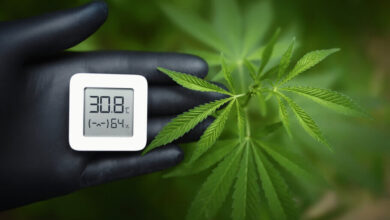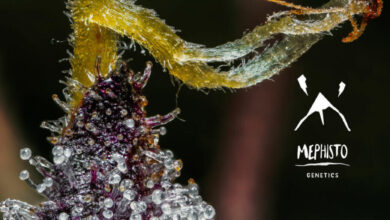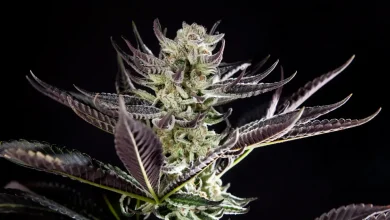Ask The Doctor- Ganjactivist.com Magazine August 2023 – Ganjactivist.com

First published in the August, 2023 issue of the Ganjactivist.com Magazine.
Cannabis has been part of human pharmacopeia for centuries. The first documented indication of cannabis use potential as medicine was in ancient China. The truth is, ganja has never been the dangerous public threat we have been programmed to perceive. Scientific study after study affirms the medicinal properties of the cannabis plant and its compounds, but the propaganda machine was significant, even permeating religious circles and of course, the political arena. Even with the declaration of the War On Drugs by the impeached President, Nixon, was unfounded. The same report he commissioned through the Shafer Commission declared “there is no reason for people not to use cannabis in the privacy of their homes.” The FDA recently declared their inability to find dangerous doses of CBD. They deferred the decision to elected officials, not scientists. We persistently seek to clear the air on such matters and have asked two of the industry’s top medical minds about cannabis and their journey.
Dr. Code Peterson. Pediatric Pharmacist, Cannabis Science Educator
Q. There is a general notion that cannabis is a placebo and people take it just to get high. All the medical accounts are just stoners. In your experience in cannabis and
medicine, how effective is ganja as a treatment?
Dr. Codi Peterson
Cannabis IS medicine, and the suggestion that it isn’t is in blatant
disregard of both history and the present. Dozens of countries now have cannabis-based prescription medicines (like Sativex and Marinol) available widely, and often have state sponsored medical programs. Countries like Germany and Italy now have state sanctioned medical cannabis programs.
Anyone who suggests cannabis is a placebo or excuse to get high is not basing that opinion in reality, but insead basing it on propaganda. Is it perfect medicine? No. Will cannabis work for everyone and every condition? Certainly not. But there are countless conditions and patients that are not adequately treated by the available therapies, and these patients deserve the opportunity to try cannabis to gauge how much it helps them.
Q. The cannabis plant is complex and people react differently to different strains,
how do you guide your patients?
Dr. Codi Peterson
Cannabis medicine is the opposite of one-size-fits-all. Cannabis medicine is individualized medicine. Some patients may be very experienced already and will require much less coaching and guidance than patients who have never tried cannabis. For this reason the saying “start low, go slow” has been echoed by all of the leading experts. Based on the patient’s symptoms, goals of therapy, and personal
preferences, a customized regimen that targets the primary complaint is usually where I start. Additionally most of my patients are started on at least two cannabinoids, oftentimes that includes THC. I am a believer that this plant has a lot more to offer than limiting ourselves to just high-THC cannabis (marijuana) would not meet the diverse needs of the average patient seeking medical cannabis.
Q. Can’t we just extract the compounds we want and take them in pill form. That would be far more trustworthy, no?
Dr. Codi Peterson
Cannabinoids can be extracted into pills, and some companies do that. And of course the added benefits would be consistency in dose — a capsule or tablet should
deliver a consistent dose. However cannabis is a highly variable medicine that when taken can be influenced by what you’ve eaten, how the product is made, what other
cannabinoids or medicine you have consumed, genetic differences, hormone changes, and much more. Edible/oral cannabis can also be much more erratic than the effects delivered by other routes of administration, including inhalation. For medical purposes I always try to have my patients on an enteral (oral) option, usually twice or 3 times a day. This helps create more consistent levels of medication in the body. Patients may then consume via inhalation as needed, but often can keep the dose lower than if they were only using inhalation all day long.
Q. Isn’t this just plant medicine?
Dr. Codi Peterson
Cannabis is not special when compared to other herbs and medicines. Like all natural products, the complex chemistry of the source, combined with our exceedingly complex biology, lead to highly variable experiences from person to person. For that reason, we titrate the dosage mindfully and slowly with the goal of optimizing the benefits and minimizing risks. This is no different than many mediations, including certain prescriptions.
Cue, Dr. Adán de Salas Quiroga, PhD. Neuroscientist & Medical Cannabis Researcher.

Q. There is a pervasive thought here (Trinidad) that THC is bad and CBD is all good!
Dr.Adán de Salas Quiroga
This is something somehow shared worldwide. The cornerstone is that so far (and probably ever) there’s no other molecule on Earth with such a broad spectrum of
therapeutic potential as delta-9 tetrahydrocannabinol…THC is directly targeting the
crucial ECS, involved in most pathological processes, while CBD is not. I would say
that, with few exceptions, CBD is capitalizing the potential and glory of THC/ full-spectrum cannabis extracts. For most clinical indications, THC would be more effective than CBD, or at least, CBD treatment would largely benefit from adding THC. However, THC goes with side, sometimes unwanted, effects. Which btw can be rather easily bypassed with certain methodology.
Q. There is a general notion that cannabis is a placebo and people take it just to get high. In your experience in cannabis and medicine, how effective is ganja as a treatment?
Adán de Salas Quiroga
It is barely impossible trying to estimate the overall efficacy of cannabis as a medical treatment. First, because it can be used for an uncountable array of clinical conditions, with different characteristics and thus distinct impact on treatment efficacy. Second, because the main molecular target of the main active compounds
present in cannabis (cannabinoids such as THC) is the ECS, whose presence and
activity is largely dependent on the person and physiological context. Therefore, the
sensitivity to cannabinoids changes from one another, and for everyone of us depending on our psychophysical status. Third, because there are major differences between one “cannabis treatment” and another. There are thousands of cannabis
varieties, with different concentrations and ratios of its main active compounds,
thus, standardization is another key aspect in the pursuit of controlled efficacy
of cannabis as a medical treatment. Last, most clinical conditions involve various symptoms and related comorbidities. And all this has a deep impact on the patient’s quality of life. Most available treatments aim only for one of the symptoms, very few
target the core of the disease, and sometimes, their effect upon quality of life is negligible. Cannabis-based treatments sometimes can target the core of the disease, often are able to treat various symptoms simultaneously, and most of the times present a remarkable improvement of the patient’s quality of life. That being said, cannabis ain’t a panacea, but it offers a huge, disrupting and promising therapeutic
potential for millions of people worldwide. However, we must know the content
of the cannabis we have in our hands, we (patients) and they (healthcare professionals) must change the paradigm towards personalized medicine (everyone’s ECS is different) and so we must understand how, who, when, what for…use cannabis as a medicinal tool, and then we would be astonished by the effectiveness of cannabis for many aspects of a disease.
 Q. Some cannabis compounds interact with the gut, how is this important to my brain function and overall health and how does cannabis help me?
Q. Some cannabis compounds interact with the gut, how is this important to my brain function and overall health and how does cannabis help me?
Dr. Adán de Salas Quiroga
This is a complex issue. The connections between the gut and the brain (and thus
with the rest of the body) are numerous. In this context we should mention that the immune system plays a major role in gut homeostasis and affects the enteroendocrine component of the gut. The ECS controls immune function, and in
turn is controlling the release of cytokines, affecting nerves terminals and other systems. Another key aspect is the gut microbiota. There is recent evidence that the ECS is a key component of the gut-microbiota-immune system-brain-body communication. It does so by various mechanisms, controlling immune function, the permeability of gut epithelium, release of hormones from enteroendocrine cells in the gut, signals from sensory nerve terminals in the gut, metabolic responses, stress
response, fat production, nutrient absorption, etc. Eventually, this interplay has a tremendous impact on our physiological conditions and both physical and mental
health.
Q. I understand cannabis compounds interact with different parts of the body in different ways, where does cannabis primarily interact with our bodies, in simple terms?
Dr. Adán de Salas Quiroga
Cannabis does not interact directly with our bodies, its active compounds do, id est,
primarily cannabinoids. There are more than 120 cannabinoids described to date, but there is one particularly important for its abundance and pharmacology. That is delta9-tetrahydrocannabinol, or THC. In contrast to CBD, which is a promiscuous
molecule without a clear molecular target, THC’s pharmacology relies mostly on THC’s action upon the endocannabinoid system. How does that work in simple terms? Let’s imagine THC as a key, a molecular master key. This key is able to fit into a lock hole of two important molecular locks called cannabinoid receptors, (i.e. CB1 and CB2 receptors). These receptors, or molecular locks, are present in the cell
membranes of many cell types found in every organ and anatomical system of our body. They are there to sense extracellular information given by the naturally produced keys (endocannabinoids) and transduce it to the cell. When the molecular key gets into the molecular lock hole, instead of open the lock it gets activated, and
sends some information to the cell that changes its activity. When this happens
in many cells collectively we have a physiological response. If that happens in
a pathological setting it could be a therapeutical response. THC, by mimicking our natural molecular keys, is able to interact with that system in a pharmacological
way.█




